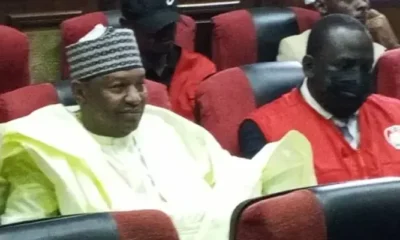Entertainment
Court Orders TikTokers to Marry Within 60 Days Over ‘Indecent’ Videos
A magistrate court in Kano has ordered TikTok stars Idris Mai Wushirya and Basira Yar Guda to marry within 60 days after their viral romantic clips

- A magistrate court in Kano has ordered TikTok stars Idris Mai Wushirya and Basira Yar Guda to marry within 60 days after their viral romantic clips were declared “indecent” by the Kano State Films and Video Censorship Board.
A magistrate court sitting in Kano State has ordered two popular TikTok content creators, Idris Mai Wushirya and Basira Yar Guda, to get married within 60 days.
The ruling followed the duo’s appearance in a series of viral videos that the Kano State Films and Video Censorship Board described as “indecent” and contrary to the cultural and religious values of the state.
Presiding Magistrate Halima Wali, on Monday, directed the Kano State Hisbah Board to ensure the marriage is conducted within the stipulated timeframe. She also warned that failure to do so would be treated as contempt of court.

“The Hisbah Board is hereby ordered to facilitate the marriage of Idris Mai Wushirya and Basira Yar Guda within 60 days from today. Failure to comply will attract contempt proceedings,” the court declared.
The Chairman of the Kano State Films and Video Censorship Board was also instructed to monitor the implementation of the order and ensure full compliance.
Both TikTokers were recently arraigned after several clips showing them in romantic and suggestive acts went viral on social media. The videos were considered immoral and demeaning, prompting an investigation by the board.

Idris Mai Wushirya was earlier remanded in a correctional facility following the controversy, while Basira Yar Guda was questioned over her involvement in what authorities called “acts capable of corrupting public morality.”
Officials of the Censorship Board maintained that their actions violated state laws prohibiting the production and circulation of sexually suggestive or obscene content on social media.
The court’s ruling has since gone viral online, sparking mixed reactions from Nigerians — with some calling it a violation of personal freedom, while others applauded the decision as a step toward upholding cultural values.























